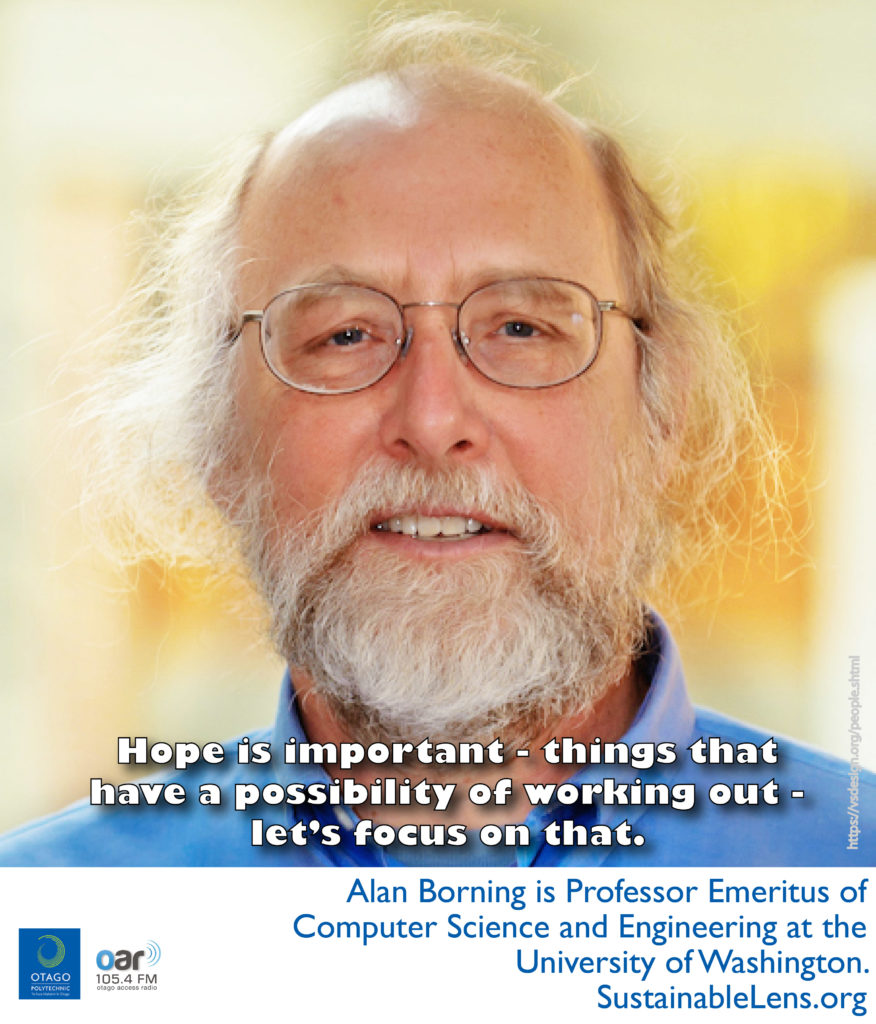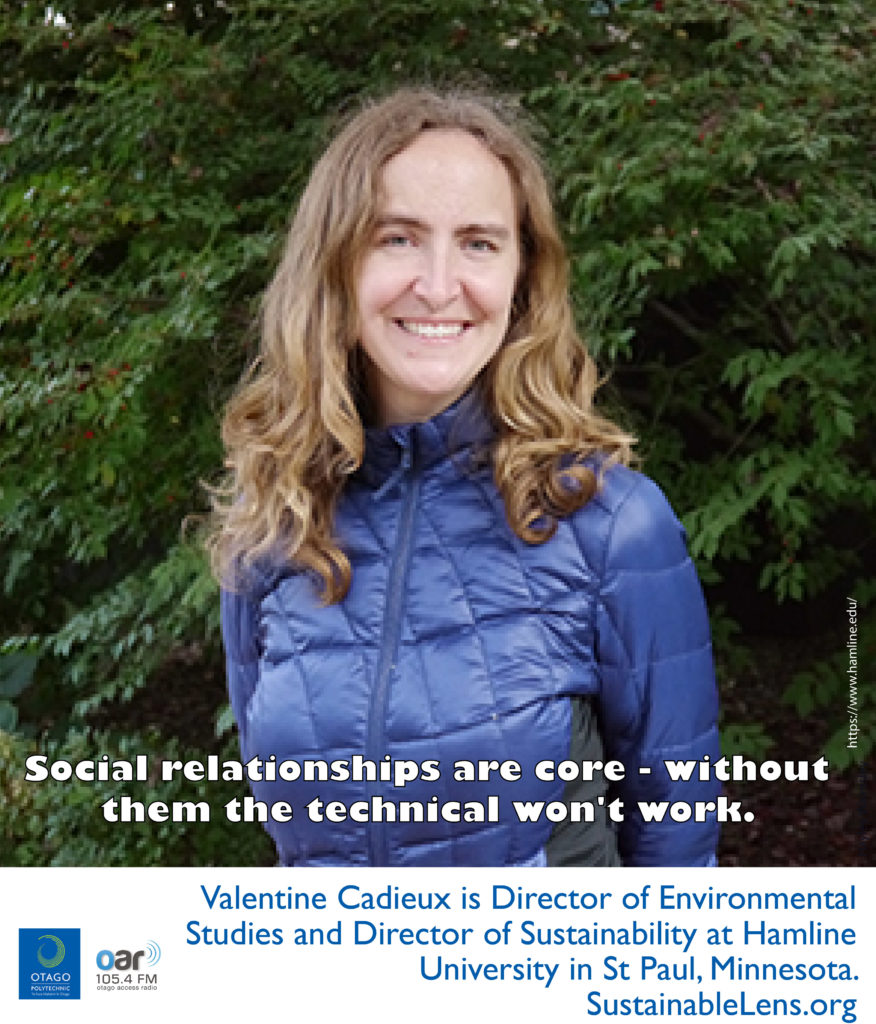
Alan Borning is Professor Emeritus at Computer Science and Engineering at the University of Washington. He is the founder of Solutions for Environment, Economy and Democracy (SEED).
For the longest time, the things that I care about – sustainability, urban form – were not really connected to my day job, so I refocused my research.
Impacting the political process is a responsibility
How human values are expressed in software…value sensitive design
We have a crisis of democracy, a broken democracy and a broken discourse
Definition: Living within nature, a society that enables a different thriving and prosperity
Success: OneBusAway
Activist: Yes, I support activists
Motivation: Doing something about huge problems. It’s easy to get pessimistic so hope is important – things that have a possibility of working out, lets focus on that.
Challenge: Surveillance capitalism
Miracle: Change the political system to take money out of politics. Vote.
Advice: Looks for things that motivate you. See how it ties into bigger picture, but don’t get overwhelmed by that.

